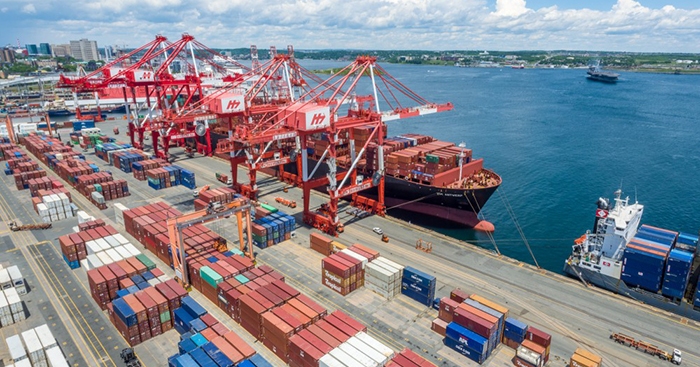
Halifax Port Sees Jump in Cargo Traffic Due to Strike at Port of Montreal
By David Burke for CBC News
Aug. 17, 2020 - Workers at Halifax's port are putting in extra hours and cargo containers are filling up every available space as the port tries to accommodate a flood of extra cargo traffic.
Thousands of extra cargo containers are being moved through the port, according to Bill Organ, director of freight forwarding with the Warehouse Transport Group. The company warehouses containers and helps transport them via truck or train to their ultimate destination.
Warehouse Transport Group moves hundreds of containers through the port. Organ said a strike by longshore workers at the Port of Montreal has diverted the cargo to Halifax — one of the few ports on Canada's East Coast that has the equipment, crews, and access to rail lines to handle the extra cargo, said Organ.
"The port is extremely busy at the moment, the last two weeks I suppose in particular," said Organ. "I would say we're nearly triple what we're used to be moving at the moment."
Organ said that's creating jobs for anyone involved in the warehousing or trucking industries. It has also meant long hours for the crews who load and unload ships.
"I've got some friends in the longshoreman union that are pushing hours of 70 or 80 a week at the moment," said Organ.
It's hard to get an exact number on how much new cargo is moving through the port, said Lane Farguson, the manager of media relations and communications for the Halifax Port Authority.
But he said it's a lot.
"What we're doing is trying to manage the yard space as best we can," said Farguson. "So if you were to drive through the property today you would see there are empty containers stacked in parking lots and in areas where you wouldn't normally see them."
Much of that cargo is offloaded in Halifax then loaded on trains and sent to its final destination.
Handling all that extra cargo isn't easy and it's put a strain on the people and systems used to transport goods.
"It is now putting pressure on the supply chain coming in and out, rail cars, trucking capacity, warehousing, storage and all the things that go along with it," said Organ.
SOURCE: CBC News
|